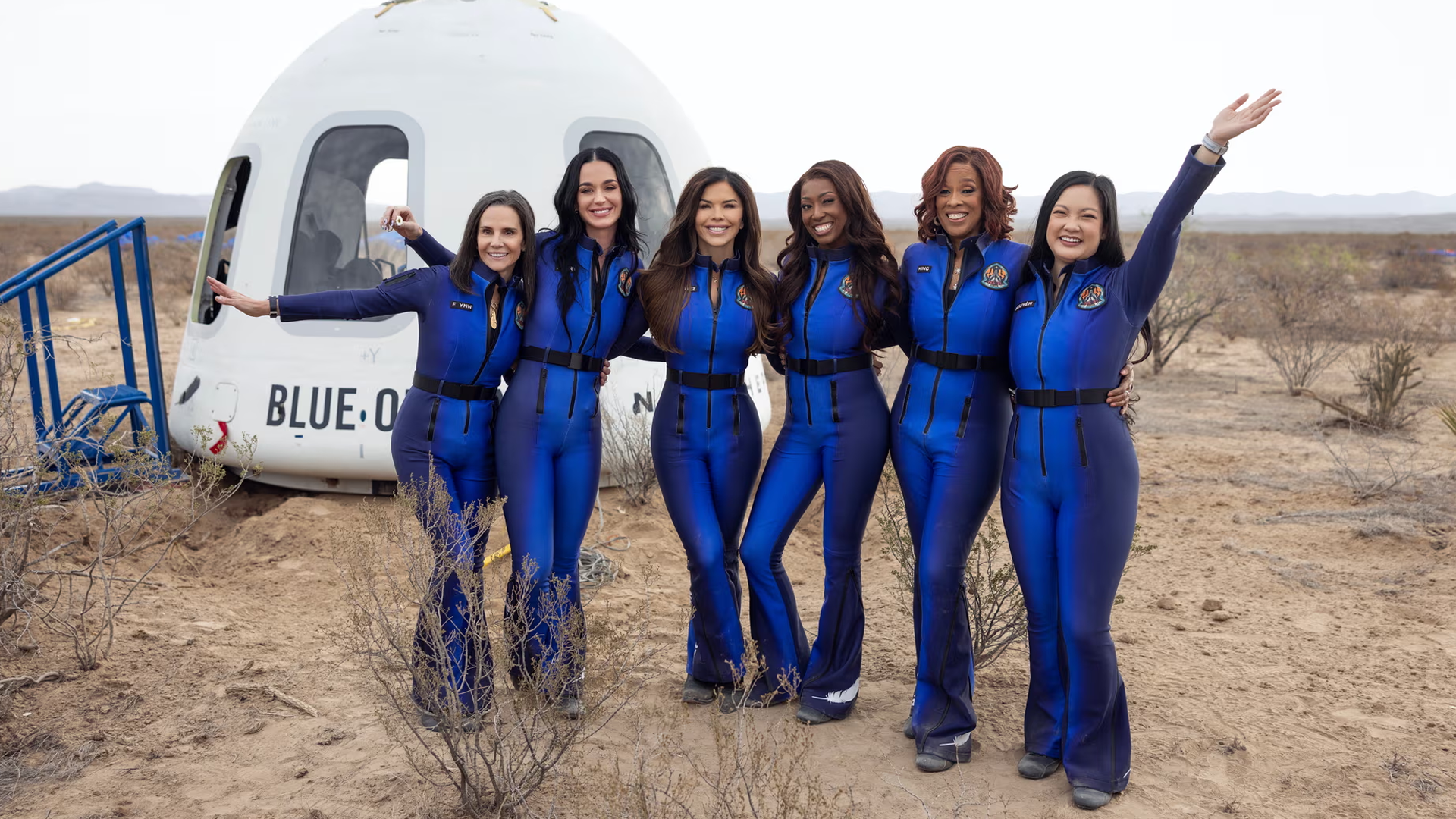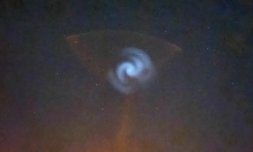The pop star spent 11 minutes on board a Blue Origin flight to the edge of Earth’s atmosphere, but despite her jubilant reaction, the all-female ‘mission’ hasn’t won-over spectators.
Everything I know about Katy Perry’s brief time in outer space is against my will. Photos of the pop star – flailing and grinning like a child on a trampoline – have been inescapable all week. She’d been joined by an all-female space crew (a loose term for the star-studded passenger lineup) on a Blue Origin space mission (another loose term for an 11 minute flight to the edge of Earth’s atmosphere).
The highly publicised escapade was widely pitched as a moment of progress – an all-female space crew, helmed by Jeff Bezos’ girlfriend Lauren Sánchez and joined by media darlings like Gayle King. But despite Perry’s jubilant reaction upon touching back down on solid land, the whole ordeal felt like a gender-flavoured distraction from a far less glamorous truth: space tourism, as it currently exists, is a marketing exercise. And a highly destructive one at that.
Blue Origin’s suborbital hop wasn’t a scientific breakthrough or a vital step in exploration. It was a luxury joyride designed to make space sexy for consumers and investors alike. And in 2025, few things are more bankable than celebrity endorsement – bonus points if said endorsement is dressed up in pink-wash feminism.
‘You’ve heard of one small step for man? This was one giant leap backwards for womankind,’ joked Marina Hyde, reporter for The Guardian. ‘What could be more empowering or something than watching Lauren Sánchez make going to space sound like brunch with the girrrrrls.’
Hyde’s words might sound scathing, but she’s not alone in her opinion. Many onlookers were less than amused by Perry and co’s brief venture into space, including model Emily Ratajkowski.
Emily Ratajkowski says she’s ‘disgusted’ by the Blue Origin space trip:
“Look at the state of the world and think about how many resources went into putting these women in space… for what?” pic.twitter.com/i9rRrWvSei
— Pop Base (@PopBase) April 14, 2025
‘This is beyond parody,’ Ratajkowski told her TikTok followers shortly after Blue Origin’s landing had been broadcast courtesy of a sponsored livestream. ‘Saying that you care about Mother Earth and it’s about Mother Earth, and you’re going up in a spaceship that is built and paid for by a company that’s single handedly destroying the planet?’
In the past decade, the space race has morphed from a Cold War-era battle of ideologies into a playground for billionaires. Elon Musk, Richard Branson, Jeff Bezos – men whose companies barely pay taxes – are now the faces of a new cosmic colonialism (I pause here to note that a Blue Origin ticket sold at auction for $28m in 2021).


















